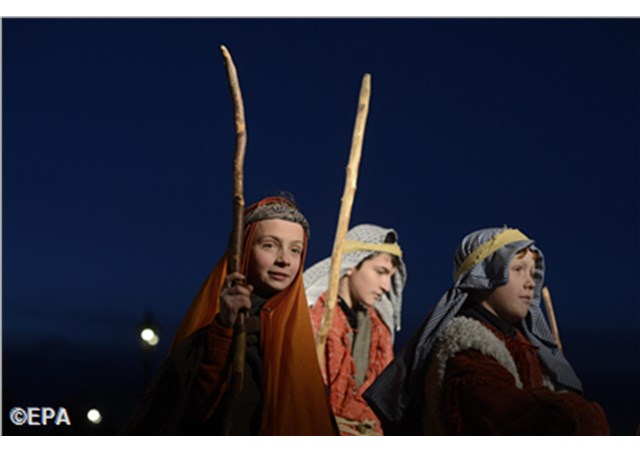
Jesus must be born in every heart, family and parish

Christ the Messiah, the giver of “new life” comes in three ways: He came 2016 years ago; He will come at the end of time; and He comes to us in our daily lives in events, people, Sacraments, the Scriptures and at death.
Daily events are centred around and in the cultures of the people. Therefore, as the Messiah comes, He comes to evangelise our cultures. A culture of a people is its religion. It defines them and presents these people’s world-view. How do they perceive things and the world? According to John S. Mbiti in the book, Introduction to African Religion, “Religion has been for Africans the normal way of looking at the world and life experience itself. For that reason, it is found whether people are. It is integrated so much into different areas of life that in fact most of the African languages do not have a word for religion as such. They only have words for religious ideas, practices and objects or places.”
As a people, we wait for the Messiah’s coming silently within the corridors of our cultures. Jesus makes His missionary itinerary to any people and to every culture. His coming is an assurance of an everlasting relationship. He enters the people’s culture to renew it. The events in people’s lives are signs of the one who comes. Jesus comes differently to different people and in different situations. Look at how He came to the woman at the well. She went to draw water, and she met him. Then she put down the Jar of natural water and went for the water of New Life (Jn 4: 1).
The Messiah comes to lead humanity to wholeness. “I have come in order that you might have life – life in all its fullness” (Jn. 10:10). The Messiah comes as a Missionary. Jesus came. The Angels came. The Shepherds came. The disciples came. And we are invited to come. This leads to a deeper evangelization … “Suddenly a great army of heaven’s angels appeared with the angel, singing praises to God: Glory to God in the highest heaven, and peace on earth…” (Lk 2: 13-14).
The role of a missionary is to Be; to Beget and to Be gone! A missionary comes. Jesus came as a missionary. He came 2016 years ago; He will come again; He comes in our daily life. He was born among us. Jesus continues to be born in our daily events. To beget is to give forth. It is to bear fruit in local cultures. The local people begin to embrace the Gospel values. When the Samaritan woman understood who the Messiah was, she “left her water jar, and went back to the town, and said to the people there, “Come and see the man who told me everything I have ever done. Could he be the Messiah?” (Jn. 4: 28-29). When the local Community responds and enhances the Faith, the Missionary goes away. To go away is to allow growth and maturity in the local Church or community. It is an assurance of being a self-governing, self-propagating, and self-sustaining Church.
Finally, The Messiah is a pastoral worker. Jesus will eventually say, “I am a good shepherd…” (Jn 10: 11). Being good shepherds is what Jesus expects of each one of us. A good pastoral worker is one who goes beyond daily routine and dreams the future of the Parish. Un-doing long-standing ways of doing things to replace them with structures that are fresh, relevant, and foster a community-Church, rather than preserving the status quo, is not an easy task. It will take the change of heart. That is why Jesus must be born in every heart, family, Small Christian Community, parish outstation, main parish and in the entire diocese.
(Fr. Cletus Mwiila, Mater Dei Parish Kalomo)
Email: engafrica@vatiradio.va
| All the contents on this site are copyrighted ©. |


